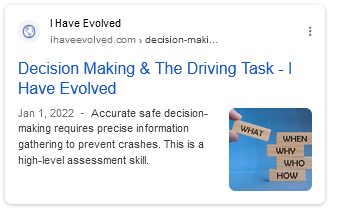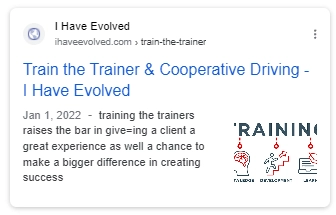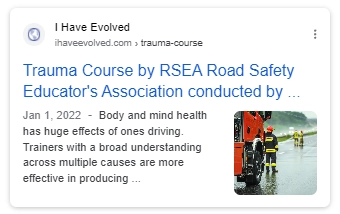This is one of the things we do best
With the Internet spreading like wildfire and reaching every part of our daily life, more and more traffic is directed to websites in search for information.

As a young man, I was very interested in cars and drove everything I could. Luckily the neighbour across the street owned a car dealership; his son and I drove every motorized vehicle we could get hands-on. It gave me a sound understanding of the machine called a car, but — were we good drivers?
Serious Crash
My closest friend ran a stop sign in my second year of college. A crossing gravel truck smashed him up pretty bad. He lost his ability to speak and walk for the next six years. I was shocked because I thought — We were good drivers!
My business and finance education directed me into stock brokerage houses, but I kept looking at road safety groups. I bought a car, got my driving instructor’s license from Young Drivers of Canada plus my classroom license from the Ontario Safety League and started teaching evenings and weekends at several driving schools.


13 Years
For the next 13 years, I stood in front of 100 different new drivers a week, ages 16 to 91, both in the classroom and on the road, including several high school contracts, fleet and business drivers: Environment Canada, Nurses Association of Ontario, and National Silicates — teaching programs such as Defensive Driving Course, Seniors Driving, 55 Stay Alive, Winter Driving, and Skid Control.
Corporate Work
My corporate work took me deeper into bigger groups like the Regional Municipality of Ottawa-Carlton, City of Kanata, & Gloucester Township. Eventually, I worked with CSIS, the Canadian Security Intelligence Service, training their top trainers nationwide. And finally, I worked with the Ergonomics Division of Transport Canada on Sue MacNeil’s cell phone study as a lead assessor for the applied science group, asking if cell phones increase a driver’s risk of a crash.


Transport Canada
Preparation for this Transport Canada work involved intense training on The Effects of Disease and Driving, The Aging Process, Stress Anxiety and Driving, Trauma Course, Decision-Making and the Driving Task, Road Safety Facilitator’s Program, and Evaluators Assessors Training.
Instilling a seriousness for driving into every driver I meet is my goal. Come, and have a great conversation about your driving and what a good driver is.
Vancouver Work
I moved to B. C. in 2019 after many years in several other careers. Reentering driver training has been a surprising discovery. I love it. Learning, while moving along in a car, in traffic, is exciting and never boring. Come talk about what a good driver is. Better yet come become that good driver.
Cooper’s Qualifications
British Columbia Training
Ontario Safety League
Road Safety Educators Association
More
Compare this to the training driving instructors receive in B.C.
Instilling a Seriousness for Driving Every Day.









